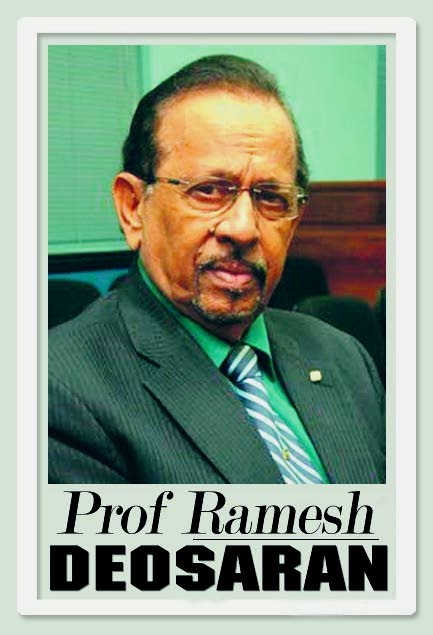That Rowley interview

Interview. As a serious instrument of media democracy, this word means "a conversation between a reporter and a person of public interest."
Of course, there is the job interview or a police interview with a suspect.
The public interest varies according to the person interviewed, and quite often, the interviewer.
Last Sunday evening,
CNC3 TV anchorman, the affable Khamal Georges, interviewed PM Dr Keith Rowley for 75 minutes, starting at 7.30 pm. There are several public-interest issues about this media episode.
The Rowley-Khamal interview was carried live only on privately-owned CNC3 and state-owned Trinidad and Tobago Television (TTT). Privately-owned CCN TV6 refused to broadcast it. Why? Wasn't it the country's prime minister being interviewed?
And further, the television licensing arrangements include some 14 hours per week for the government, a condition bearing serious constitutional implications for free, privately-owned media.
CCN TV6 management explained (1) Such a broadcast would seriously interfere with the station's commercial obligations (2) Both the broadcast and the interviewer gave the appearance of an exclusive arrangement between the Office of the Prime Minister (OPM) and CNC3, with its anchorman Khamal Georges as the interviewer. (3) CNC3 and Mr Georges are competitors of CCN TV6, a station that boasts of "no political interference."
Since the interview appeared to have taken place at the OPM, questions arose: Were the questions asked of Dr Rowley prepared by the OPM or originally by Mr Georges himself? To what extent were Dr Rowley's answers edited, if at all?
Of course, either way, nothing is really wrong with this. The PM is entitled to give an interview on the nation's business, or a "state of the country" address. And this is part of what Communications Minister Donna Cox attempted to explain to CCN TV6. Essentially, however, the station's objection seems more about having to give an advantage to its competitor rather than the content of the interview itself. As far as credibility is concerned, the public will decide.
In the circumstances, CNC3 and Mr Georges on their own should have considered a similar 75-minute interview with Opposition Leader Kamla Persad-Bissessar.
Or the ideal public-interest broadcast coming into the election should be one with both PM and Opposition Leader facing a panel of two or three independent interviewers.
You see, in the world of mass media, especially privately-owned media, credibility and fairness are crucial unless a particular media house declares its political preference as policy. All that is freedom of the press too. In fact, this issue also points to the larger issue of state ownership of costly, money-losing television, a matter
on which the Opposition itself must soon declare its intended policy.
No doubt, Dr Rowley has worries about his government's performance, especially over crime, the economy and his own political management. And the CNC3 interview was quite a legitimate attempt to explain and justify, leaving credibility for public judgment.
However, there is something that political leaders especially should consider. Social psychological research has consistently revealed that information alone is not enough to persuade or change opinion. There is motive, who is saying it, who is the audience, what is the existing climate of opinion, etc.
The important result of this is that rather than achieving the opinion expected, quite often, the audience becomes more entrenched in its original opinion, even disliking the politician more than before. It is called the boomerang effect. No wonder some enlightened advisers tell the politician or public official to stay away from the press, or keep a low profile for a while, or rather than just talk, do a few things instead to help solve the problem. Take positive action rather than just boast.
In fact, this psychological formula is quite relevant to the crime problem. This was an interview area in which Khamal needed to dig more deeply regarding government policy and police performance, and in which Dr Rowley exposed his nervousness.
Quite unlucky for him that Sunday and in reference to the Police Commissioner's performance, the Express editorialised: "We will not be bullied. The CoP has now convinced us that he has no intention of growing into the responsibilities of the job. His attempts to categorise the media and other critics who will not bend to his will as conspirators against him is nothing but a transparent ploy to manipulate public opinion." Maybe Khamal should have asked Dr Rowley about this.


Comments
"That Rowley interview"